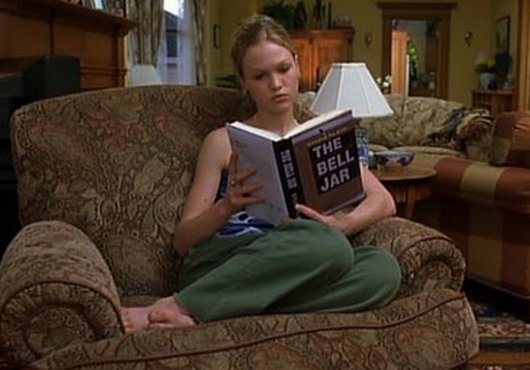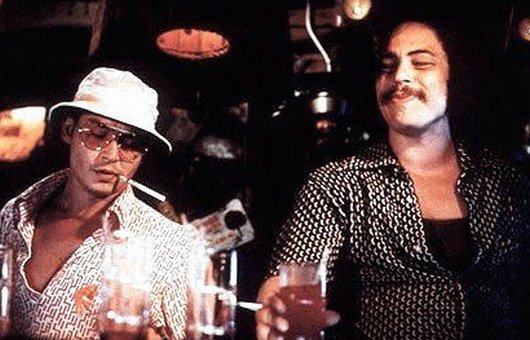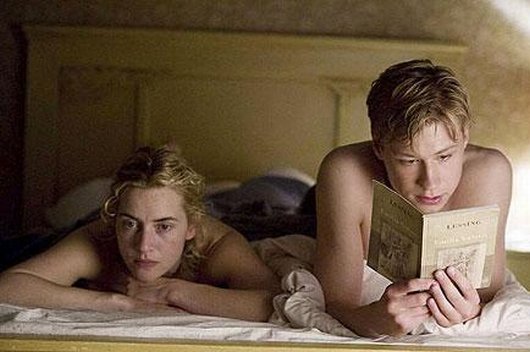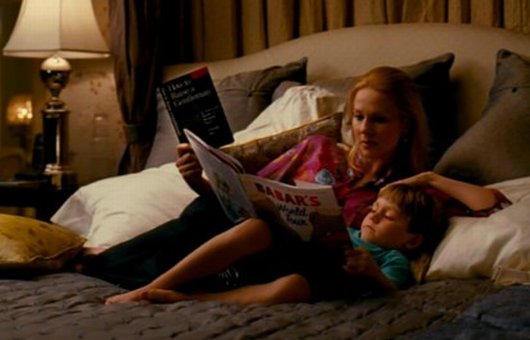 BOOKS
BOOKS In Which We Harbor A Sneaking Suspicion Of Literature
 Friday, March 2, 2012 at 10:38AM
Friday, March 2, 2012 at 10:38AM 
The New Classics
by ELLEN COPPERFIELD
Coming across a person who is completely jaded about something you enjoy is either amusing or frustrating. In the case of my boss - let's call her Ms. J - it's a little of both. She's clearly "well-read" even though that expression is itself so overused as to become meaningless, but she also seems to have elaborate gaps in her education. We all have blind spots, but none are so educational as Ms. J's appraisal of modern literature. Here are some of her comments on books I asked if she read.

Journey to the End of Night
"If I wanted to read a book by a man with a woman's name, I'd read Justinians."
The End of the Affair
"The first and last time anyone had sex with a civil servant and did not regret it."

The Last of the Mohicans
"You just know James Fenimore Cooper would have been, like, a writer for The Atlantic Monthly."
The Brothers Karamazov
"One of the brothers was way out of line, can't remember which one. The one that looked like Rutger Hauer."
Middlemarch
"Could we lose the last million pages?"
The Tin Drum
"Was that where he kept his Jewish friends? Don't tell me, I'm going to read it after I finish Motherless Brooklyn, e.g. never."
Hunger
"My college roommate ate a lot of ramen noodles. Was that not an option in Scandinavia?"

Fear and Loathing in Las Vegas
"I can't read a book that doesn't have a woman over the age of thirty in it unless it's by Wayne Koestenbaum."
Mansfield Park
"Everyone is always holding back a slight smile. Perhaps there was a lot of food on other people's faces in Austen's time."
The Things They Carried
"Vietnam was full of happy memories, wasn't it? No."

To Kill A Mockingbird
"Wow, what white people can accomplish when they put their mind to it. Scout later grew up and became the star on the The Real Housewives of Maycomb."
Time and Again
"If you suddenly find yourself in 1882, and you're a man, for christ's sake stay there and never come back."
The Recognitions
"Whenever I see an emdash before someone talks, a part of me dies inside. Actually whenever I see an emdash anywhere, I get a little twinge in my rectum."

The Hour of the Star
"The only thing more confusing than this book is realizing you emerged into the world from Ayelet Waldman's uterus."
The Secret History
"They got high and killed someone? Big deal. Didn't that also happen in E.T.?"
Gravity's Rainbow
"This was responsible for over 90 percent of Fredric Jameson's orgasms in the 1970s."
The Counterlife
"If I was creating a fictional alter ago, my fake last name would not be Zuckerman. It would be Jambalaya."
Ellen Copperfield is the senior contributor to This Recording. She is a writer living in San Francisco. She last wrote in these pages about the childhood of Jorge Luis Borges. You can find an archive of her writing on This Recording here.

"Cloud Chamber" - Errors (mp3)
"Pleasure Palaces" - Errors (mp3)
"Earthscore" - Errors (mp3)






























